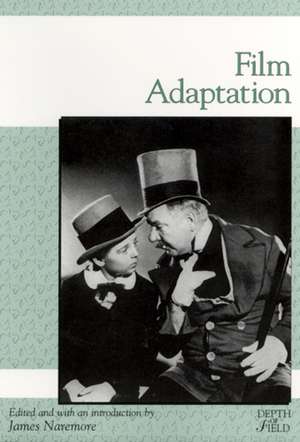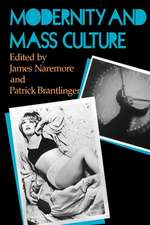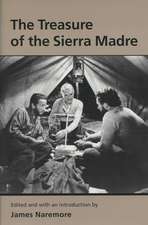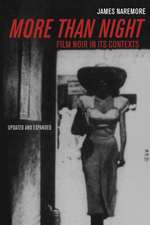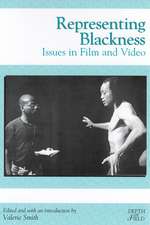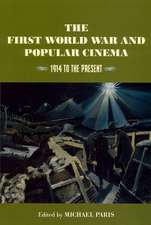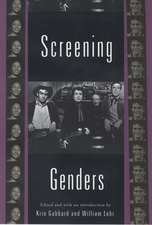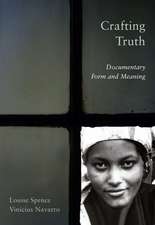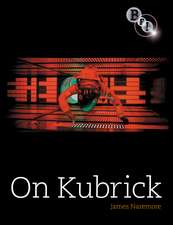Film Adaptation: Rutgers Depth of Field Series
Editat de James Naremoreen Limba Engleză Paperback – mar 2000
Some of the earliest feature films were derived from classic literature. Even today, most of the movies we see are adaptations of one kind or another. People who have never read Jane Austen can see her characters on the screen; but filmgoers can also see material taken from theater, television, comic books, and every other medium.
The essays in this volume, most of which have never before been published, raise fundamental questions about cinema and adaptation: what is the nature of the "literary" and the "cinematic"? Why do so many of the
films described as adaptions seem to derive from canonical literature rather than from other sources? How do the different media affect the ways stories are told?
Film Adaptation offers fresh approaches to the art, theory, and cultural politics of movie adaptations, even challenging what is meant by the term "adaptation" itself. Contributors examine the process of adaptation in both theory and practice, discussing a wide variety of films. James Naremore's introduction provides an accessible historical overview of the field and reveals the importance of adaptation study to the many different academic disciplines now attracted to the analysis of film as commodity, document, and cultural artifact.
(Contributors are André Bazin, Dudley Andrew, Robert B. Ray, Robert Stam, Richard Maltby, Guerric DeBona, O. M. B., Gilberto Perez, Michael Anderegg, Matthew Bernstein, Darlene J. Sadlier, Jonathan Rosenbaum, and Lesley Stern.)
The essays in this volume, most of which have never before been published, raise fundamental questions about cinema and adaptation: what is the nature of the "literary" and the "cinematic"? Why do so many of the
films described as adaptions seem to derive from canonical literature rather than from other sources? How do the different media affect the ways stories are told?
Film Adaptation offers fresh approaches to the art, theory, and cultural politics of movie adaptations, even challenging what is meant by the term "adaptation" itself. Contributors examine the process of adaptation in both theory and practice, discussing a wide variety of films. James Naremore's introduction provides an accessible historical overview of the field and reveals the importance of adaptation study to the many different academic disciplines now attracted to the analysis of film as commodity, document, and cultural artifact.
(Contributors are André Bazin, Dudley Andrew, Robert B. Ray, Robert Stam, Richard Maltby, Guerric DeBona, O. M. B., Gilberto Perez, Michael Anderegg, Matthew Bernstein, Darlene J. Sadlier, Jonathan Rosenbaum, and Lesley Stern.)
Preț: 316.25 lei
Nou
Puncte Express: 474
Preț estimativ în valută:
60.52€ • 62.95$ • 49.96£
60.52€ • 62.95$ • 49.96£
Carte tipărită la comandă
Livrare economică 14-28 aprilie
Preluare comenzi: 021 569.72.76
Specificații
ISBN-13: 9780813528144
ISBN-10: 0813528143
Pagini: 272
Ilustrații: 1
Dimensiuni: 152 x 229 x 18 mm
Greutate: 0.4 kg
Ediția:None
Editura: Rutgers University Press
Colecția Rutgers University Press
Seria Rutgers Depth of Field Series
ISBN-10: 0813528143
Pagini: 272
Ilustrații: 1
Dimensiuni: 152 x 229 x 18 mm
Greutate: 0.4 kg
Ediția:None
Editura: Rutgers University Press
Colecția Rutgers University Press
Seria Rutgers Depth of Field Series
Notă biografică
JAMES NAREMORE is Chancellors' Professor of Communication and Culture at Indiana University. He has edited North by Northwest (Rutgers University Press), and is the author of The Magic World of Orson Welles, Acting in the Cinema, and More than Night: Film Noir in its Contexts.
Recenzii
"Naremore's provocative collection breaks new ground in both theoretical and practical studies. . . . The work of informed, thoughtful writers, virtually all the essays are useful reading; combined they convey the crucial, indeed central, importance of adaptation as a critical theoretical category in film studies. Recommended for all collections."
Descriere
Some of the earliest feature films were derived from classic literature. Even today, most of the movies we see are adaptations of one kind or another. People who have never read Jane Austen can see her characters on the screen; but filmgoers can also see material taken from theater, television, comic books, and every other medium.
